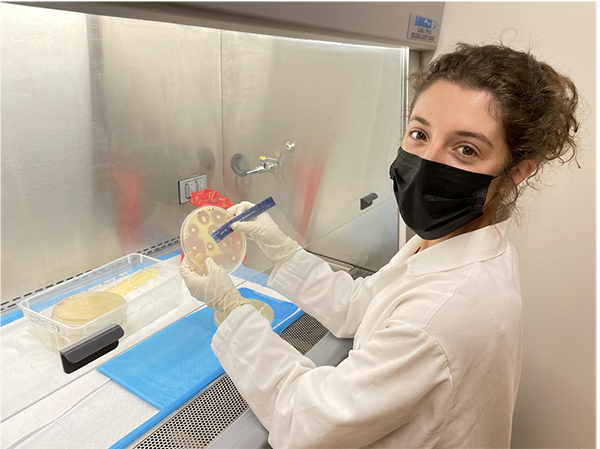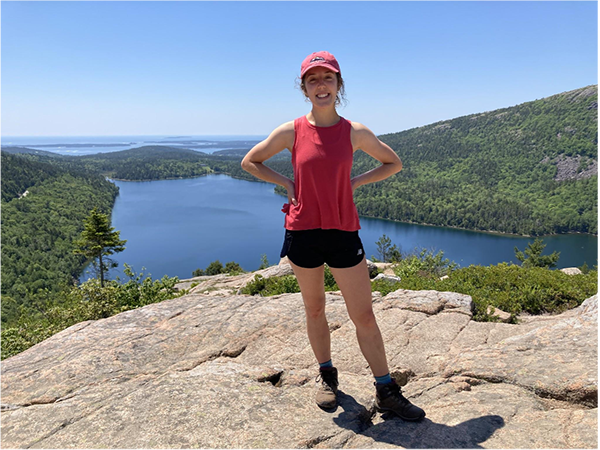A (gram) positive summer studying S. aureus in Maine dairies
Written by Elisabeth Roadcap, OneHealth REU program 2022 participant
Hello! My name is Elisabeth Roadcap, and I am a rising junior majoring in Molecular Genetics and minoring in Microbiology at the University of Vermont. After working on both produce and dairy farms, I became interested in how humans are impacted by the health of plants, animals, and their environmental interactions. This led to my interest in public health and particularly how it overlaps with animal health. Zoonotic and vector borne infectious diseases are consequently fascinating to me. I was drawn to the REU ANEW program because of its One Health focus and the opportunity to participate in a project that has interdisciplinary implications for both animal and human health.
This summer, I am working with Dr. Anne Lichtenwalner at the Veterinary Diagnostic Laboratory studying S. aureus in Maine dairies. S. aureus is a gram-positive bacteria which, in addition to causing opportunistic infections in humans, causes mastitis in lactating livestock. S. aureus has developed strains which are resistant to antibiotics such as methicillin, known as MRSA, and can produce toxins which lead to food poisoning when consumed. These issues make S. aureus of interest to public health.

My project has both an epidemiological and a lab-based component. First, I aim to identify trends in S. aureus infections using data from cases identified at the Veterinary Diagnostic Lab. These could include case distributions by county or significant changes over time. Second, in the lab, I am characterizing about twenty S. aureus isolates. Using phenotypic (disk diffusion) methods, I am testing the susceptibility of the isolates to a dozen commonly used antibiotics. Later, I will extract the isolates’ DNA to create a library for future genomic analysis such as the identification of antibiotic resistance genes and toxin genes. If time and funding are available, I hope to begin this genetic characterization in the final weeks of the program. My project will provide preliminary data for a public health lab intern who will be able to complete and expand upon this research in the coming years.
In addition to the hands-on aspects of my work, I’ve been developing administrative research skills. I learned how to plan my project based on a budget and timeline, how to read literature in my field to identify knowledge gaps and methods, and how to network with other scientists. I’ve also benefited from our professional development meetings about scientific communication strategies, graduate school programs, and broader impacts of research. Exposure to these topics has provided me with a well-rounded view of what goes into research.
To top it all off, Maine has been a beautiful place to spend the summer! Along with students from other REU programs, I’ve explored local trails, coffee shops, and activities in Orono and Bangor as well as ventured to Acadia National Park. I’m so grateful for this opportunity and am looking forward to maintaining the professional and personal connections I’ve made through this program as I apply what I’m learning to my future endeavors.

